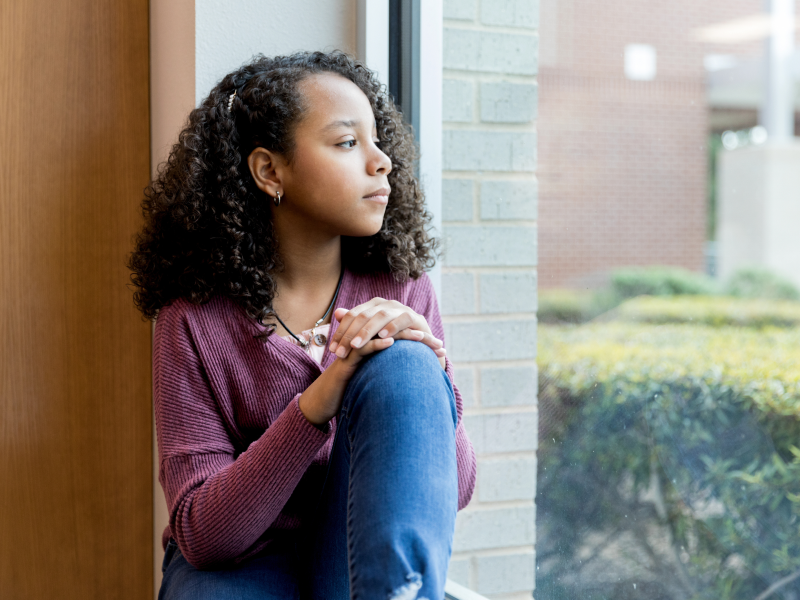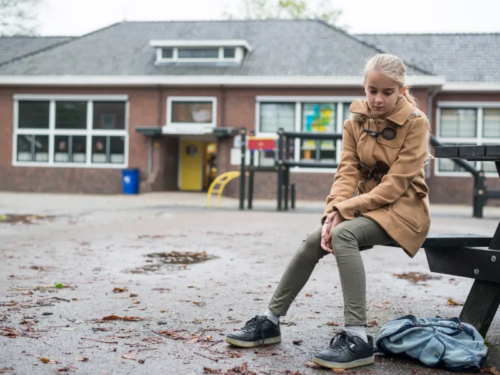
Table of Contents
What’s the Best Childhood Trauma Therapy?

Written By: Alex Bachert, MPH

Clinically Reviewed By: Dr. Don Gasparini
Updated: April 24, 2024
5 min.
Childhood trauma can leave a lasting impact on a person’s well-being. Here’s how to heal.
Learn more about our Clinical Review Process
Table of Contents
Childhood trauma — whether that’s adversity, physical or emotional childhood abuse, or another traumatic experience — can leave a lasting impact on a person’s well-being, affecting their relationships, behavior, and mental health. In fact, research shows that childhood trauma can contribute to the development of conditions like anxiety, depression, and post-traumatic stress disorder (PTSD). However, with the right kind of treatment, healing from childhood trauma is possible.
Below, we delve into childhood trauma treatment options, including the best therapy for childhood trauma and other treatments that can help people address childhood trauma (including subconscious or unresolved childhood trauma).

Virtual childhood trauma therapy is a click away
Individual therapy and supportive groups with people who get it.
The best childhood trauma therapy options
Without proper support, childhood trauma can remain in a person’s body and continue to affect their mental and physical health. Trauma-related symptoms include difficulty concentrating, sleeping, and eating. As mentioned, trauma has also been linked to anxiety, depression, and PTSD, as well as increased substance use, emergency room admissions, and general feelings of unhappiness.
The most effective treatment for childhood trauma varies depending on individual needs and circumstances. However, some widely recognized and effective therapies for addressing childhood trauma are as follows.
Trauma-focused cognitive behavioral therapy (TF-CBT)
A trauma-specific iteration of cognitive behavioral therapy (CBT), this structured talk therapy aims to help people understand and manage their thoughts, feelings, and behaviors related to a traumatic childhood experience. It often involves techniques such as relaxation skills, cognitive restructuring, and exposure therapy.
Eye movement desensitization and reprocessing (EMDR)
A leading form of trauma therapy, EMDR helps people process traumatic memories by using bilateral stimulation, such as eye movements or tapping, to facilitate the brain’s natural healing process. EMDR therapy can be taken to address traumatic childhood experiences, like physical abuse or neglect.
Dialectical behavior therapy (DBT)
DBT is a kind of behavioral therapy that focuses on teaching skills to manage emotions, improve interpersonal relationships, and increase distress tolerance. DBT for trauma can be particularly helpful for people who struggle with emotional dysregulation as a result of childhood trauma.
Play therapy
Especially effective for children, play therapy allows them to express and make sense of their experiences through play and creative expression in a safe and supportive environment. Play therapy can be used by people of all ages.
Attachment-based therapy
Attachment-based therapy is rooted in the understanding that early relationships with caregivers profoundly influence a person’s development. For people who have experienced childhood trauma, particularly neglect, abuse, or inconsistent caregiving, these early attachment experiences may have been disrupted or damaged. In attachment-based therapy, a therapist works to address these relational wounds by providing a safe therapeutic environment where clients can explore and make sense of their attachment patterns and experiences.
Somatic experiencing
Somatic experiencing focuses on the body’s physical sensations and responses to trauma, helping people release stored tension and regulate their nervous systems. This kind of therapy recognizes that trauma is not just psychological but also physiological, affecting the body’s nervous system and somatic (bodily) sensations. During somatic experiencing sessions, a trauma therapist helps clients develop an awareness of their bodily sensations and track how their bodies respond to different thoughts, emotions, and memories. By gently exploring these sensations, clients can gradually release the stored tension from childhood trauma.
How to heal subconscious trauma from childhood
Trauma affects everyone differently, and some people may not even realize when they’re carrying trauma from childhood, an experience sometimes referred to as subconscious trauma or unresolved childhood trauma. For example, research shows that trauma can impact the brain’s ability to form memories — potentially as a way to cope with the emotional and psychological impact of difficult events. In addition to professional support (like the therapies outlined above), here are three steps you can take to heal subconscious trauma from childhood.

1. Acknowledge the trauma
Trauma relates to a person’s understanding of a distressing event and their ability to process and cope with that information. For some people, it’s easier to bury the feelings associated with a traumatic experience or pretend that it didn’t happen altogether. However, acknowledging your trauma symptoms is one of the first steps in healing. Once you acknowledge a traumatic experience, your triggers, and its impact on your life, you give yourself the power to heal.
2. Process the emotions
Guilt, shame, sadness, confusion, fear, fatigue, embarrassment, denial — there is no right or wrong way to feel after living through a traumatic event. Whatever it is that you feel, take the time to understand how your trauma has impacted your emotional health and well-being. Processing your emotions —especially with a trained mental health professional — creates the necessary room to grow and heal.
3. Be patient
It’s important to remember that change doesn’t happen overnight. Childhood trauma can have long-term consequences, such as unpredictable emotions, disturbing flashbacks, and strained relationships. If you’ve experienced trauma, you may also have certain triggers — including smells, sounds, and situations — which can unexpectedly remind you of the traumatic event. Everyone’s response to trauma is different, so show yourself patience and compassion as you navigate your unique healing journey.

What causes childhood trauma?
Data shows that more than two-thirds of American children experience a potentially traumatic event by the time they turn 16. A wide range of experiences can cause childhood trauma, but some common causes of trauma in children, teens, and young adults include:
- Childhood abuse (including physical, verbal, or sexual abuse)
- Neglect (including physical or emotional neglect)
- Parental loss or separation (due to substance abuse, divorce, abandonment, or death)
- Accidents or disasters
- Systemic trauma (also known as historical or intergenerational trauma stemming from racism, poverty, or oppression)
Childhood trauma therapy at Charlie Health
If you or a loved one are struggling with the effects of childhood trauma, Charlie Health is here to help. Charlie Health’s virtual Intensive Outpatient Program (IOP) provides more than once-weekly mental health treatment for young people and families dealing with serious mental health conditions, including trauma. Our expert clinicians incorporate evidence-based therapies into individual therapy, family therapy, and group sessions. With this kind of holistic online therapy, managing childhood trauma is possible. Fill out the form below or give us a call to start healing today.




